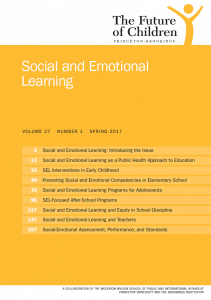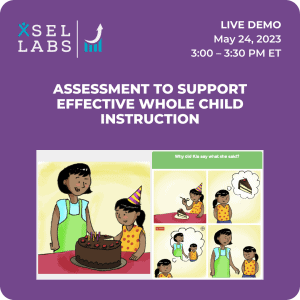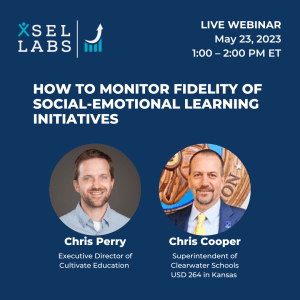We all know that success in school and life depends on more than book smarts. There is a lot of talks these days about what skills, other than IQ, matter, and what educators can do to nurture those skills.
Different people have different names for it. Character, “non-cognitive skills,” emotional intelligence, and social-emotional learning, or SEL, are among the most widely used. All terms have their merits. I prefer SEL because it is specific and descriptive.
SEL is a Set of Skills
So what is SEL? At the broadest level, SEL includes the skills required to interact effectively with others and to develop and maintain positive relationships. There are many different models describing the specific skills that matter most. Probably the most widely cited definition comes from CASEL, the Collaborative for Academic Social and Emotional Learning. They describe SEL as including self-awareness, self-management, social awareness, relationship skills, and responsible decision-making. Within each of these five broad areas, there are many specific skills.
Most state standards and evidence-based SEL programs rely heavily on the CASEL framework. But it is not the only model out there, and if you asked ten people to define SEL, it is nearly certain that you’d get ten overlapping but distinct definitions.
Why Defining SEL Matters
If you are reading this, chances are you are involved in supporting student social-emotional development. A critical and unglamorous first step on the road to doing this well is to be clear about what you and your team mean by SEL. Armed with a common definition of what SEL includes (and does not include!), you are freed to focus on specific and measurable skills, to invest in programs and practices focused on what matters most, and to select methods of assessing and monitoring student social-emotional outcomes. A common definition also greatly aids communication among members of your team who share your commitment to children. In fact, working from a common and clear definition is perhaps the most fundamental sign of a shared commitment.
Coming to clarity is not easy. It can involve wrestling with research, competing frameworks, and local values to pick the highest priority skills from among a host of important skill areas described by many different players with different views of what matters most.
Defining SEL as Thinking Skills and Doing Skills
If we all agree that SEL includes the skills needed to have effective interactions and to develop and maintain positive relationships with others, it is useful to divide those skills into two types. First are thinking skills such as the ability to read facial expressions and understand others’ points of view. We call these skills “social-emotional comprehension” because they involve thinking skills that are largely invisible to observers.
Second, are behavioral skills such as the ability to be cooperative and assertive. SEL also includes emotional skills such as self-control and the ability to refrain from negative behavior towards others. We call these skills “social-emotional execution” because they involve observable behaviors.
Examples of Comprehension and Execution Skills
| Comprehension | Execution |
| Recognizing others feelings | Joining an ongoing conversation |
| Understanding others’ points of view | Taking turns on the playground |
| Solving social problems | Enacting a solution to a problem |
| Regulating strong emotions | Interrupting someone (negative) |
This way of defining SEL skills can help as you work to identify what is most important. It also lends itself to selecting the assessment strategies that are best-suited to measuring student skill level.
I urge anyone interested in assessing SEL to spend the time and effort getting really clear about what they mean by SEL and working to ensure that everyone on the team has a shared understanding of SEL why t is the focus of assessment.
I wrote about this in a 2017 volume of the Future of Children.
Click here to read more.




